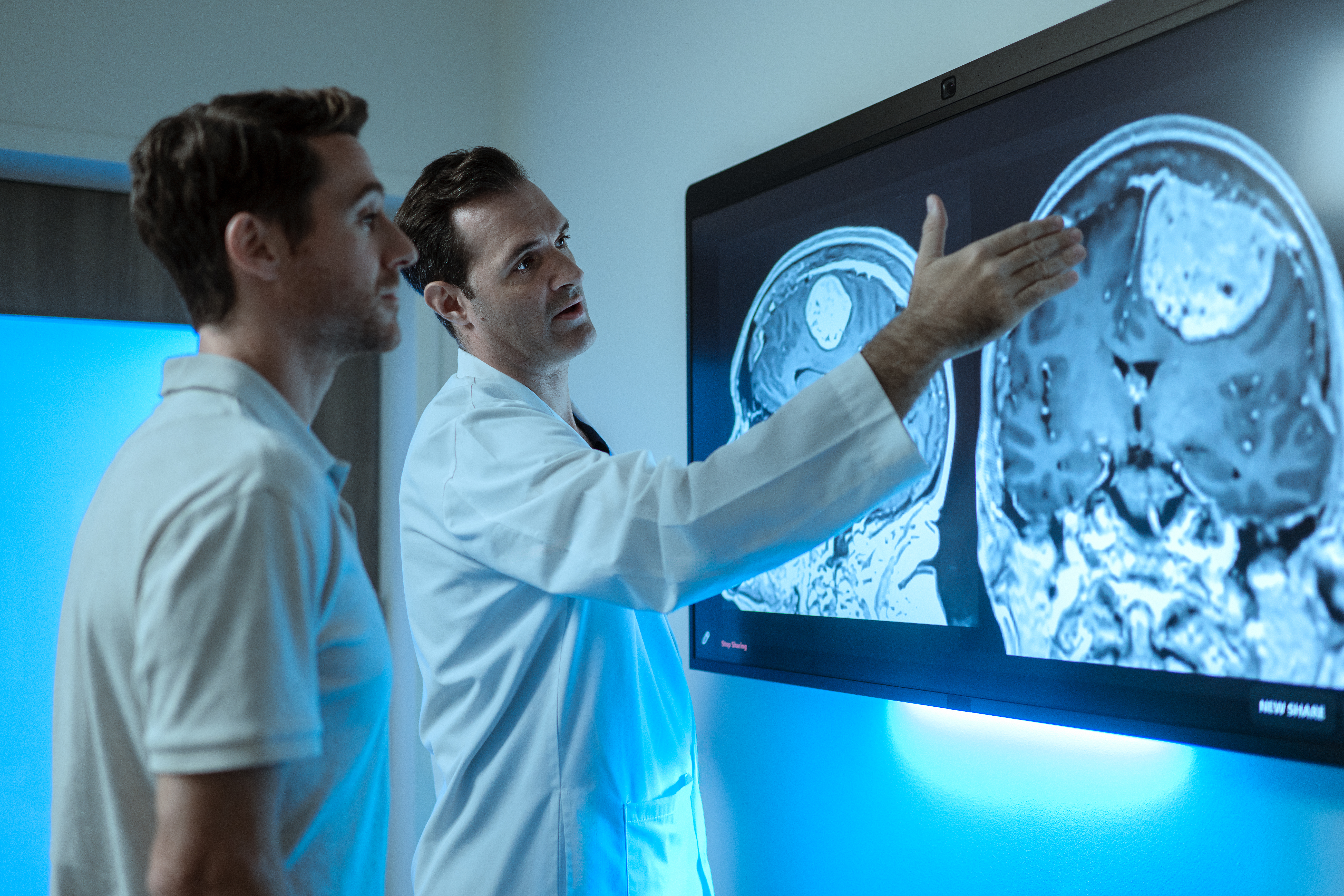Medulloblastoma Symptoms and Treatment

What is medulloblastoma?
Medulloblastoma is a type of fast-growing brain cancer that develops in the cerebellum and may spread to other areas of the brain and spinal cord via cerebrospinal fluid. In rare cases, medulloblastoma may also spread to another part of the body, such as the bones or the lymph nodes.
Although medulloblastoma can occur at any age, it most commonly affects young children. In fact, while medulloblastoma is rare overall, it’s the most common type of cancerous brain tumor among children, accounting for approximately 20% of all childhood brain tumors.
What are the symptoms of medulloblastoma?
Medulloblastoma symptoms include:
- Headaches (typically worse in the morning)
- Blurred and double vision
- Rapid side-to-side eye movements (nystagmus)
- Nausea
- Vomiting
- Fatigue
- Dizziness
- Confusion
- Impaired balance and coordination
- Difficulty walking and performing fine motor skills
- Seizures
While some of these symptoms may be caused by the tumor itself, others may occur due to the resulting buildup of cerebrospinal fluid which can increase the pressure within the skull.
Medulloblastoma causes and risk factors
Researchers are still working to identify the exact cause of medulloblastoma. However, studies have shown that certain risk factors can increase someone’s chance of developing this malignancy, such as having any of the following inherited disorders:
- Cowden syndrome
- Gardner syndrome
- Gorlin syndrome
- Li-Fraumeni syndrome
- Turcot syndrome
It’s important to remember that having one or more of these risk factors does not mean that someone will develop medulloblastoma—some individuals have multiple risk factors and never experience the condition, while others develop medulloblastoma without there being any known risk factors present.
Medulloblastoma diagnosis
After speaking with a patient about their medical history and symptoms and performing a physical examination, a physician will likely order one or more of the following tests to either confirm or rule out a medulloblastoma diagnosis:
- Neurological examination
- Computerized tomography (CT) scan
- Magnetic resonance imaging (MRI) scan
- Biopsy
- Lumbar puncture (spinal tap)
Medulloblastoma survival rate
A medulloblastoma prognosis and the resulting quality of life will depend on various factors, such as the patient’s age and how far the cancer has spread and the molecular/genetic features of the tumor. For example, children younger than three years old typically have a lower survival rate since there aren’t as many treatments available to them.
Medulloblastoma treatment
Medulloblastoma generally requires surgery to relieve pressure within the skull and/or remove the tumor. It also provides tumor tissue for proper pathology diagnosis. This procedure will typically be followed by radiation therapy, chemotherapy or both to destroy any remaining tumor cells. However, treatment can vary depending on the patient’s age and general health, the type of medulloblastoma present, the tumor’s location and severity and various other factors.
Moffitt’s approach to treating medulloblastoma
If you’re concerned that you may have medulloblastoma, you can turn to Moffitt Cancer Center for diagnosis and treatment. The skilled providers in our Neuro-Oncology Program have extensive experience treating cancers of the brain, skull base and spine—including medulloblastoma—and they’ll work together to provide you with a highly individualized treatment experience. Our multispecialty team includes neurologists, neuroradiologists, neurosurgeons, medical oncologists, radiation oncologists, neuropathologists, neuropsychologists, endocrinologists and other experts.
Medically reviewed by Dr. Andre Beer Furlan, skull base and endovascular neurosurgeon, Neuro-Oncology Program
To request a consultation at Moffitt Cancer Center, call us at 1-888-663-3488 or fill out a new patient registration form online. We’ve made it our goal to provide every new patient with rapid access to a cancer expert. We understand that every day counts after a cancer diagnosis, and we want to support you with compassionate care every step of the way.
Types
